Interview: U.S. Congresswoman Chellie Pingree, D-Maine
A climate champion in Congress!
Chellie Pingree has been the U.S. Representative for Maine’s 1st Congressional District since 2009, winning eight consecutive elections. She is vice-chair of the Congressional Progressive Caucus, and serves on the powerful House Appropriations Committee, where she is Ranking Member of the Interior and Environment Subcommittee, as well as a member of the Subcommittees on Agriculture and Military Construction and Veterans Affairs. Congresswoman Pingree lives on a farm on the island town of North Haven, Maine.
A lightly edited transcript of this exclusive interview follows. This writer’s questions and remarks are in bold, Congresswoman Pingree’s responses are in regular type. Bold italics are clarifications and extra information added after the interview.
This interview is syndicated by both The Weekly Anthropocene and Your Daily Dose of Climate Hope.
How do you see the work you're doing right now in Congress in the context of the way climate change is affecting Maine? We’ve got the warming Gulf of Maine, the melting ground in the North causing problems for the logging industry in winter, and much more. How do you see your role as a representative of Maine in the age of climate change?
Well, I've been concerned about the issues related to climate change for a very long time. I came into Congress as a strong environmentalist and have continued that work since I've been there.
I feel like we're in one of the best positions we've ever been in after passing the Inflation Reduction Act. And there’s some great work that we're doing in the Agriculture Committee to try to mitigate the impacts of climate change, to fight back against the causes of too much carbon in our atmosphere. Congresswoman Pingree introduced the Agriculture Resilience Act. So many of the things that we're deeply concerned about, we're working on more now than ever!
“I feel like we're in one of the best positions we've ever been in after passing the Inflation Reduction Act….
So many of the things that we're deeply concerned about, we're working on more now than ever!”
-Rep. Chellie Pingree
The reverse of that is, the opposition has grown, I think, over the years. There's always been a lot of opposition to environmental causes, but I think particularly related to climate change. And so much of it is coming through the form of misinformation, disinformation, confusing the public, questioning whether or not climate change is real and whether or not we really have to do anything. I think it means that we all just have to work that much harder to support these causes even more, to work against the disinformation, the lies that are out there all the time. And nowhere do we see that more than in a political cycle. The time that we're in right now, you know, we're seeing this out front and debated.
We haven’t turned the corner in reducing the amount of carbon in the atmosphere, we haven't changed enough of our practices to make the kind of difference that we need to make. I do think more of the public understands the challenges of climate change, but it's a very abstract notion, in a way. It's not like polluting a river. When we were cleaning up the rivers in the state of Maine because of the toxic dumping of the paper industry, industrial waste, and sewage waste, people could see the dirty river, they could figure out what had to stop, and then we could have a cleaner river.
Climate change doesn't really work that way. We don't see the impact of what we do every day increasing the amount of carbon in the atmosphere. And I think that just makes it really difficult for people to deal with. But again, I feel that we just have to work that much harder on it and that's certainly been a lot of my focus since I've been in Congress. You know, working on bills related to climate change, but also working on solutions, whether they're agriculture or renewable energy, how people can modify what goes on in their own home, food waste, fast fashion. There's just a whole gamut of things that I've worked on and I will continue to work on if I'm lucky enough to be reelected.
One specific issue that you've been leading on and that the state of Maine has been leading on is the rise of aquaculture. In Maine, we've got oyster farmers, kelp farmers. I've interviewed the folks at Atlantic Sea Farms, who are the biggest seaweed farmers in the country, they've got like a couple dozen partners in Maine now. I know you've been working on that through promoting ocean cluster-related bills (I've made some maps about this!), and through agriculture, including marine-related stuff in federal Farm Bills. Could you discuss Maine and aquaculture and your leadership on that?
Sure. You know, I think the whole topic of how we treat our oceans, how we use our oceans is often undervalued in Congress. The fact is, we don't have the same proportionate amount of attention to how big of a role our ocean plays in our daily lives. And I think when you come from the state of Maine, you have an acute awareness all the time, partly because of our fishing industry and our tourism industry that's so much impacted by the coast. There's just so much of our history and our economics and our culture centered on the ocean, it's a big part of what we do in Maine. Hence, any challenges related to the ocean impact us enormously.
The two storms that we had last winter were really damaging to our working waterfront. And those were back to back unprecedented storms that were clearly impacted by climate change and how our weather's getting more severe. The ocean is warming, and the Gulf of Maine will warm at a rate faster than really any other body of water in the ocean. That has a huge impact on our fishermen, whether it's the lobster fisheries moving north or the invasive species or just the changing climate of what people have to work on.
So we're seeing a lot of change in our fishing industry, and one of the things that has changed is the growth of the aquaculture industry. We have so many more farmed species in Maine now. The oyster industry has really grown tremendously.
We have kelp farmers now in Maine, many of whom are also lobster fishermen who do kelp farming kind of part time. We have a fin fish aquaculture industry. Some of that has been here for a while, like the salmon farms in Eastport, and some of them are new ways of looking at salmon farming onshore and filtering the water and trying to get beyond some of the challenges that have been a part of salmon farming. And then we also have farmers who are testing out new species that didn't used to be a part of aquaculture, like scallops, and the possibilities for growth in the scallop industry, which is a very high value species, but we don't have as much wild caught scallops as we used to.
So I've worked on this in a variety of ways. Last year, I brought some of the members of the Agriculture Committee to do a listening session in Maine. I introduced them to a scallop farmer, a kelp farmer, and an oyster farmer, and took them to an oyster farming site. Aquaculture is largely covered under the USDA. So these are a lot of people who care deeply about agriculture, but have almost no idea of farming the sea and the role that it plays.
I've worked on bills related to our working waterfronts, everything from what do you do when you have the disasters that we're experiencing these days to how to protect and expand our amount of working waterfront. Because fishermen depend on our working waterfront, it's really important to them. It's also important to the aquaculture farmers who have to get out to harvest and check on their species that they're working on.
“Fishermen depend on our working waterfront, it's really important to them.
It's also important to the aquaculture farmers who have to get out to harvest and check on their species that they're working on.”
-Rep. Chellie Pingree
I am working on something we call the Ocean Regional Opportunity and Innovation Act, and that's really to look at the blue economy. I'm sure if I asked my colleagues, nine out of 10 of them wouldn't know what the blue economy was. And it's not because they're not smart people who care about a lot of things! It's just not something that people talk about a lot, but there are great opportunities for us both to do more interesting economic work in the ocean around things like aquaculture and kelp farming. And also to take some of the carbon out of the ocean, oyster farming or kelp farming has a really important role to play.
Another issue I've done a lot of work around is ocean acidification. Congresswoman Pingree introduced the Coastal Communities Ocean Acidification Act, which has so far passed the House. That increasing acidification in the ocean has a net negative effect on things like oysters' ability to make a shell, and probably a lot of things we don't even research enough and don't know enough about.
So you can see that just the ocean is a huge topic, as well as the well-being of our fishermen, the challenges fishermen have every day, whether it's the cost of bait or the cost of fuel or the cost of health care, because they're all independent operators. There's a lot to look at in the fishing and aquaculture industry, and it's been a big part of what I've done since I got elected, but also it has a huge impact in the climate change sphere as well.
This is spectacular work. Thank you.
You touched on this, but you’ve really led on the working waterfronts issue - you introduced the Keep America’s Waterfronts Working Act and the Working Waterfronts Disaster Mitigation Tax Credit Act. Can you tell me about this work, what it does, and why it's needed?
Yeah, I was specifically focusing in my bill on some of the challenges that commercial fishermen and fishing communities were dealing with, where there's a lot of interest in all of our coastal communities for development. We know how beautiful they are. We know how valuable working waterfront is generally. And we just have seen a tremendous decline in the amount of waterfront available. And as I was mentioning earlier, you know, fishermen need access to the waterfront. Lobster fishermen in particular, they put their traps in the water, they take their traps out of the water, they move them around. Aquaculture farmers need the ability to go check on their kelp or harvest their kelp and put it into a truck. You know, there's just so many things. And with a diminishment of that, it's a huge issue.
So the bill that I have, the Keep America's Waterfronts Working Act, I co-sponsor with a Republican from Virginia whose son is in the fishing industry and has worked around fishermen all of his life, so he has a good sense of this problem as well. Some of the bill is a grant program, some matching grants to states. I recently got a call about a high value coastal community where they've got a piece of property coming up for sale. Had my bill already passed, we'd have this funding available to them, but they're looking at any possible avenue to be able to buy that piece of waterfront, to put together the funds to do it before it turns into commercial development. Not to say there isn't valuable other kinds of development on the coast, but we need that working waterfront!
It also has a grant program, it has a low interest loan program, it helps do some of the inventory of the coast. We don't really have a good assessment of how much working waterfront we've lost, and we are losing and again, with the severity of the storms that we're having, that we experienced in Maine last January, that we're seeing in states like Florida and all up and down the Southeast coast. A lot of times when you lose a pier on the coast, it might have been family owned, or a couple of fishermen owned it together. There aren't always adequate funds to rebuild that pier and then there's no way for that family or other organization to hold on to it.
So we consider that a really important bill. Our bill has passed through the House once, but it hasn't passed through the Senate. Sometimes we can get some of the language into an appropriations bill. We're just looking for every opportunity we can to make sure that that money is available.
We have another bill I just recently introduced with a Republican from North Carolina, and that actually involves some tax credits after disasters, because that's another thing that we're seeing more often now. It used to be just development pressure, you know, bigger buyer with deeper pockets comes in and wants to buy a working wharf. That was our original insight. But now, as I said, these wharfs are getting destroyed. And so sometimes you need a tax credit or a higher level of support to allow that family to rebuild back a working wharf.
I wonder, just a brief digression, how many other members of Congress do you think live on an island in the ocean? Because I think that that must give you a really interesting perspective on these ocean-related issues. It must be quite rare.
Yeah, I probably am the only one! I don't know anyone else in Congress who currently lives on an ocean.
I mean, there are a few other members who, you know, have similar experiences to mine. Obviously, the person who represents Alaska, she knows a lot about remote rural communities. They have a lot of islands and ferries. Washington State has remote islands and ferries. Some of my colleagues have had the experience of working with them or visiting them in their own districts.
But having lived on an island community most of my life, I'm very familiar with the development pressure, the lack of affordable housing, the difficulty keeping working waterfront, pressure from storms. There's a lot, and I try to bring that firsthand knowledge to the work that I do, and try to bring that level of support.
“I don't know anyone else in Congress who currently lives on an ocean….
I try to bring that firsthand knowledge to the work that I do, and try to bring that level of support.”
-Rep. Chellie Pingree
I do think many of the issues that we experience on an island are very similar to remote communities, in northern Aroostook County or other rural parts of our country. I look for those other members who have a good understanding of rural issues, because a lot of them, really cross through so many things. You know, rural healthcare is a challenge, and rural transportation, sometimes even access to healthy food. Rural communities can be food deserts because there aren't a lot of grocery stores nearby or there isn't a local farm stand. So there's a lot of different things. And I consider that a really big part of what I do.
Can you tell me about your work to rein in fast fashion and your founding of the Slow Fashion Caucus this year?
Sure. I just started the caucus this year and I've found a lot of colleagues who are also interested in it. And I think there will be some growth.
I joke with my colleagues, it's easy if you come from Maine to be interested in slow fashion. You don't have to show up for a meeting in a suit and tie or your fanciest outfit in Maine, generally. You can go to the nicest restaurant in Maine and the people will still be wearing jeans and a flannel shirt and their L.L. Bean boots. We don't have this overarching “You’ve got to buy a lot of new clothes” culture. We’re Yankees. People love thrift shops, and reusing their clothes. That's just very common as a way of life here.
Honestly, when I started to hear about the fast fashion thing, I might have found it annoying, but I didn’t realize the environmental impact that it had, in the beginning. So much of our clothing is manufactured from fossil fuels today. A lot of it is from synthetic fibers.
Some of the challenges happen with companies like Shein or Temu, who actually are able to ship clothing into this country under a trade loophole that we should have gotten rid of a long time ago. A trade loophole that was allowed before we had so much internet shopping, where people see something on Instagram and in 10 minutes they've bought it and in two days it's at their door, and no tariffs are paid, and that really undermines our own commercial businesses.
A lot of the synthetic textiles today are also undermining our natural fibers, which has an impact on farmers in this country, on domestic cotton or linen or hemp or wool. Many things that were a part of the Maine economy over the years, and the market and the demand just isn't there.
I started to realize that this was having an impact on climate change. That the fastest growing waste stream in our landfills today is actually clothing. We're shipping a lot of our clothing that we think is going to a thrift shop, and it actually ends up in landfills in South America or in Africa. And as any of these things disintegrate in a landfill, they add more methane gas to the atmosphere, which just encourages the challenges that we've got with climate change.
So I originally started the caucus because I was like, let's just start to raise awareness. Let's do a better inventory in this country of how much we're actually throwing away. Let's do some research on the legislation that other countries and some states are already mandating and think about what we could do. There are people who at times will be like, “Seriously? We’ve got real problems in the world to deal with, and you’re taking on the fashion industry?” On the other hand, consider how large of an impact that it has. It's something that involves all of us in our daily lives.
If we could get a labeling system, we could know more about the clothing that we're buying. Is it made with child labor? Is it a synthetic fiber that can't be recycled? You know, there are a lot of things that we could do, and so we're trying to look at all the ways we can encourage this. We're looking at future legislation. We have a GAO study that should be out this fall. So we're looking forward to seeing that and having a few more current facts and figures to deal with.
But I'm the Ranking Member on the Interior and Environment Subcommittee, that includes funding of the EPA. And the EPA actually has jurisdiction of all of our recycling and our landfills. So I think there are some ways that I can work with this in future budgeting if I'm back in Congress.
Excellent!
To jump around again, one other bill of yours that I really, really admire, a powerful commonsense take on an issue that has unfortunately become kind of politically radioactive, is your bill and your article about the need to let asylum seekers work.
I'm really passionate about this issue. I went to college at the University of Southern Maine in Portland, and some of the most inspiring human beings and most hardworking people I've ever met in my life were some of my fellow students there who were immigrants. I was friends with a girl from Sudan, a guy from Angola, and these people really, really wanted to work and contribute.
Their story was the American story. All our ancestors that came to this continent were in their shoes at some point. And I really admire that you're willing to go out and say this obvious common-sense thing. So can you tell me more about this and how you got to that point?
Sure, and thank you for sharing that story. All too often, especially in the political climate that we're in, people try to stigmatize the new Mainers, the people who are here seeking asylum, the people who come to our country for asylum, as somehow “the Other,” people we would never understand or want to welcome into our country. And it's really sad because, as you said, many of their stories are the quintessential American story. They're fleeing a challenging situation in their home country, and they just want to be here to have a better life.
Like so many Americans, my grandfather was a Norwegian immigrant. We don't think about Norway being a difficult country, but in the early 1900s, there wasn't enough land, there wasn't enough money for the people, and he was lucky enough to be able to come to America and start out as a farmer in this country. And frankly, we needed him then just as much as we need new Mainers now.
“Like so many Americans, my grandfather was a Norwegian immigrant….
And frankly, we needed him then just as much as we need new Mainers now.”
- Rep. Chellie Pingree
In Maine today, there are about two jobs for every one person and you can talk to virtually any employer, you can drive by any business and there'll be a sign out there saying we're hiring, we're looking for people. We want willing workers and we don't have enough in Maine. We're the oldest state in the nation. We've been struggling for a long time to grow our economy, without enough people to help us do it! So the idea that people are getting stigmatized and blamed, and that we're looking for ways to turn people away and not welcome them with open arms, is crazy.
As you said, one of the challenges in our system today is that when someone legally enters the country, says that they're here to apply for asylum, then gets to a state like ours and fills out their application for asylum, it can take as much as seven years to get get it processed! It's a very long, slow wait. They are then, after the application goes in, still required to wait another six months before they can apply for a work permit! And then, of course, once they apply, they might have to wait several more months before they actually get it.
And these are people who, the day they get to Maine, they say, “Can I go get a job? Look at all these help wanted signs!” Many of them are trained to be health care professionals or engineers. They’re just willing to go to work and do what needs to be done!
So my bill, it's just a simple piece of legislation. It says, 30 days. You wait 30 days after you’ve legally applied for asylum [to be able to work]. We shouldn’t make you wait more than 30 days.
“My bill, it's just a simple piece of legislation. It says, 30 days.
You wait 30 days after you’ve legally applied for asylum [to be able to work].
We shouldn’t make you wait more than 30 days.”
-Rep. Chellie Pingree
You know, people complain. They say, oh, we're paying to house people, we're paying to take care of people. Well, yeah, we have willingly extended that period that we have to pay for people to have housing because they can't go get a job and find their own place to rent or pay their own bills! That's what people tell me every day. “Let me go to work. Let me support my family.”
This should be easy, but unfortunately, we have been in a terrible climate for any kind of immigration reform. There was recently a high-profile bill in the U.S. Senate that was very bipartisan, would have passed. And one of the presidential candidates, Donald Trump, said, don't pass this bill, I want to leave it out there as an issue.
And my bill fits into that. There was actually some language in that bill that would’ve helped with this situation. I'm just hoping after this election cycle we can get back to work and get some of this done, because it's really creating a problem and it’s just a sad situation to be in.
You're really saying the truth that people shy away from here, which is, the only real problem with immigrants is that we don't have enough. You're actually saying, we should be welcoming these people with open arms, we should be making it easier for them to work. I strongly believe in that, and very few people are saying it these days. I'm really, really grateful that you're out there saying that. Thank you so much.
You know, I understand why people say there's a problem at the border. Our processing systems aren't very good. The reason we were trying to get that bill passed in the Senate last year was because there are a lot of things we need to update. We don't have enough judges to deal with these issues. We aren't investing enough in the things we have to do.
But it doesn't mean that immigrants are inherently bad or that we don't want them in this country! You can ask any chamber of commerce or group of business people and they will tell you, please give me the workers. We need to do that, especially in a state like ours where we're the oldest state in the nation.
It's too bad it's a political issue. It's too bad people have gotten afraid to even talk about what's real. But a lot of our politics like that is today. If you just talk about the facts, we have much more agreement than we do disagreement.
We do! And in Maine in particular, there's been such amazing cultural renaissance thanks to new Mainers. Like the story of the Somali community in Lewiston, their arrival kept schools open and revitalized the town. There's amazing stuff going on!

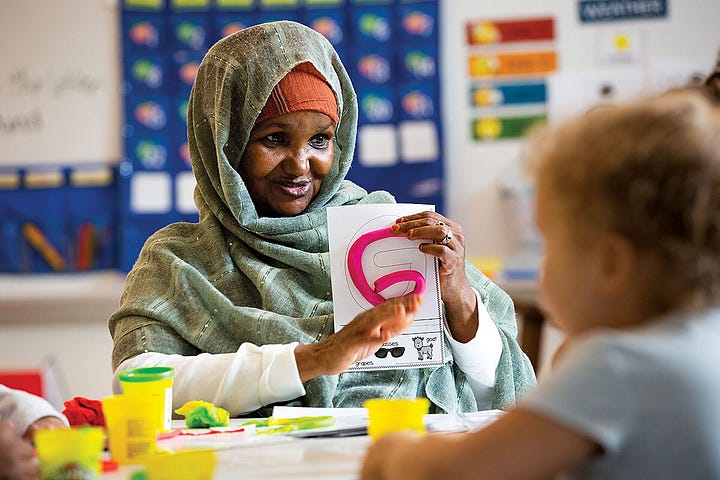


So, what else would you like to share? About the work you're doing, about what it's like in Congress these days, about anything you think needs to be better known?
Well, I might go back to one of the things I said in the beginning. Our biggest challenge in the long run is really dealing with the climate crisis, and making sure that we have a workable, livable planet for our children and grandchildren.
“Our biggest challenge in the long run is really dealing with the climate crisis, and making sure that we have a workable, livable planet for our children and grandchildren.”
-Rep. Chellie Pingree
And I think for all the people who are true believers and, you know, really engaged in this, we just can't get discouraged. We can't throw up our hands and say, you know, “Government hasn't done enough, it's not happening fast enough, I'm just going to give up on this.”
Sometimes change is incremental. Sometimes you work a long time before you have a real tipping point. But you can't have people turning back in the middle of it.
And everybody has to do the job to combat disinformation and misinformation because the amount of lies…The amount of lies I hear, even from people who care deeply about the environment, who will say to me, “Oh, that doesn't matter,” it’s crazy.
We have to do it all. We have to find ways to make our homes as energy efficient as possible. We have to electrify our cars. We’ve got to get more batteries manufactured in this country. we have to keep plowing ahead and innovating and creating the next design of battery that’s not using the same materials. We have to do all this.
And there's no time for people to be like, “Yeah, everything's not perfect, so I'm not going to do it.” I mean, the one thing I know about working on public policy for many years of my life is you never know when the big change is going to come, even on the things that you think are intractable issues that will never get fixed. I remember a time in Congress when everybody said we’d never be able to have marriage equality. And then the day comes, and we got to move as quickly as we can to the next issue. It's really important that people don't give up. Climate change is real.
That's my long stump speech on why we have to do this.




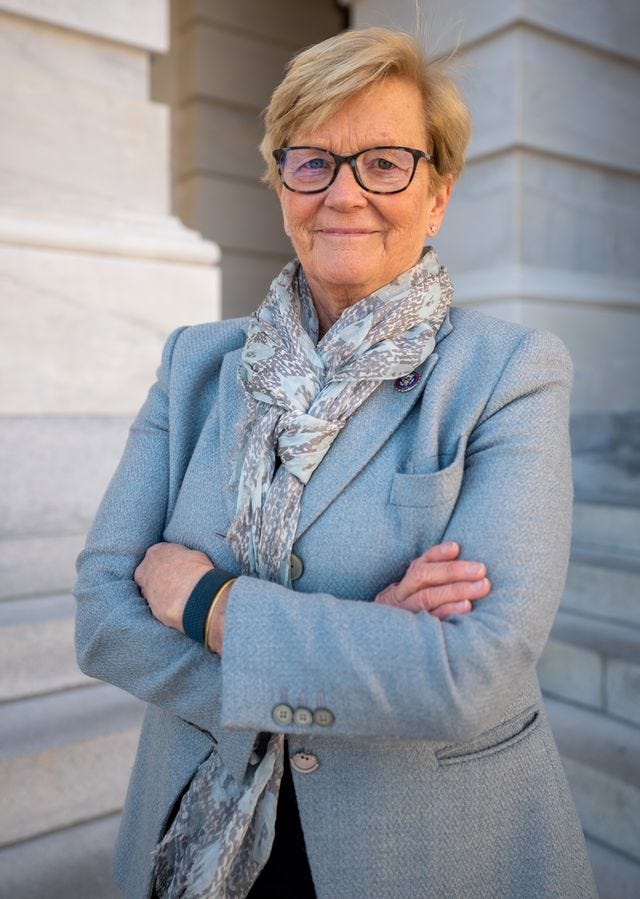

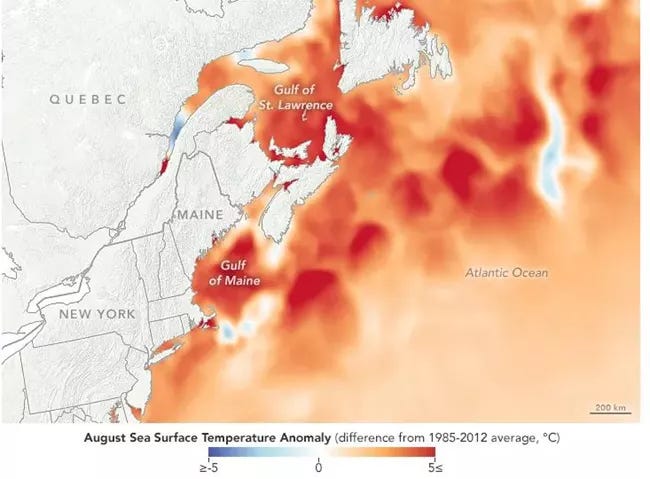


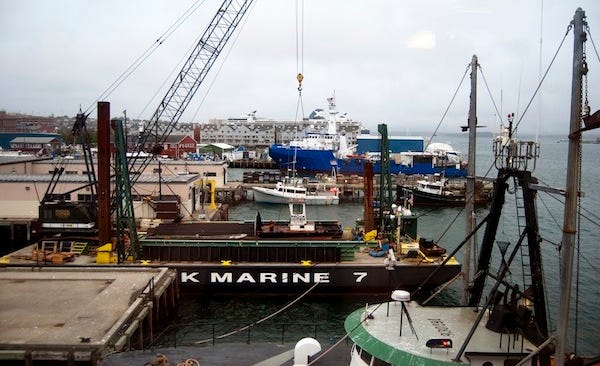
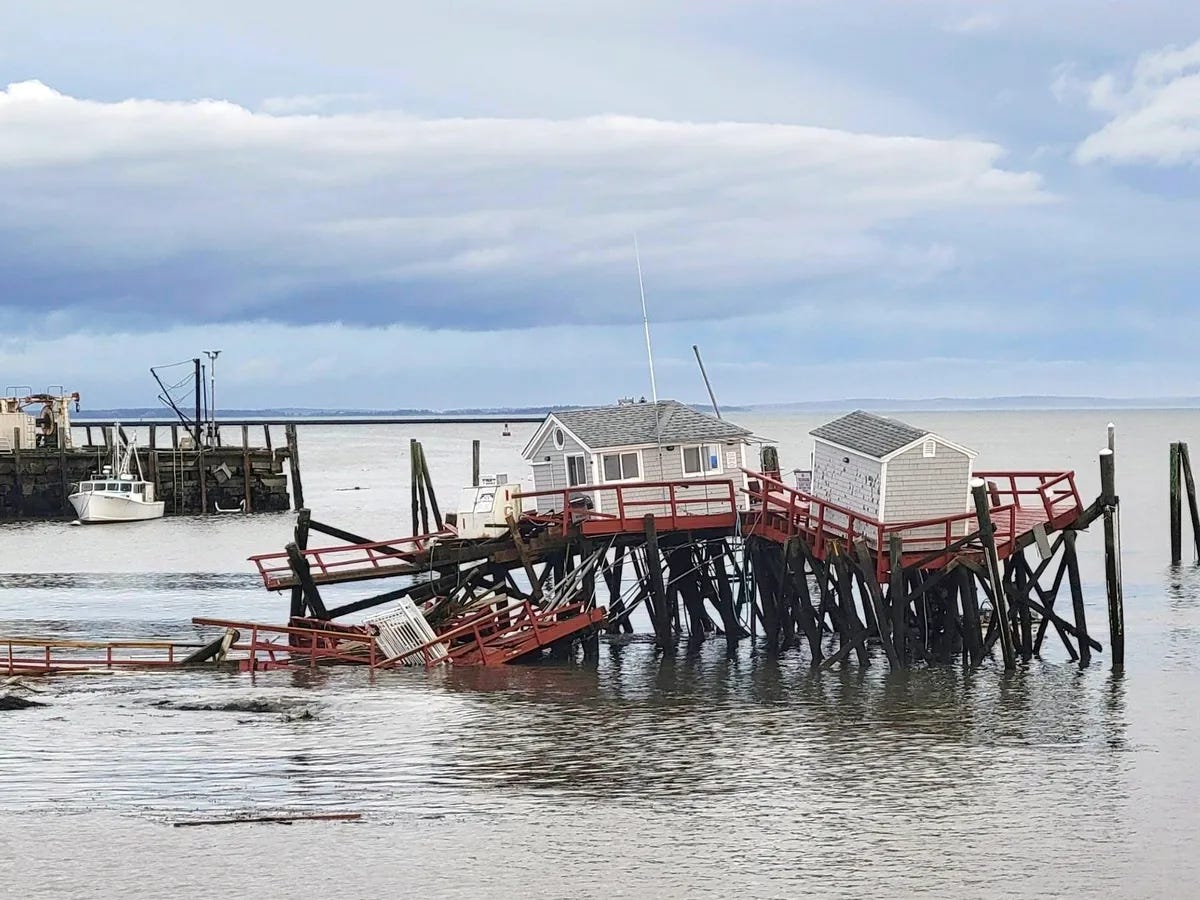
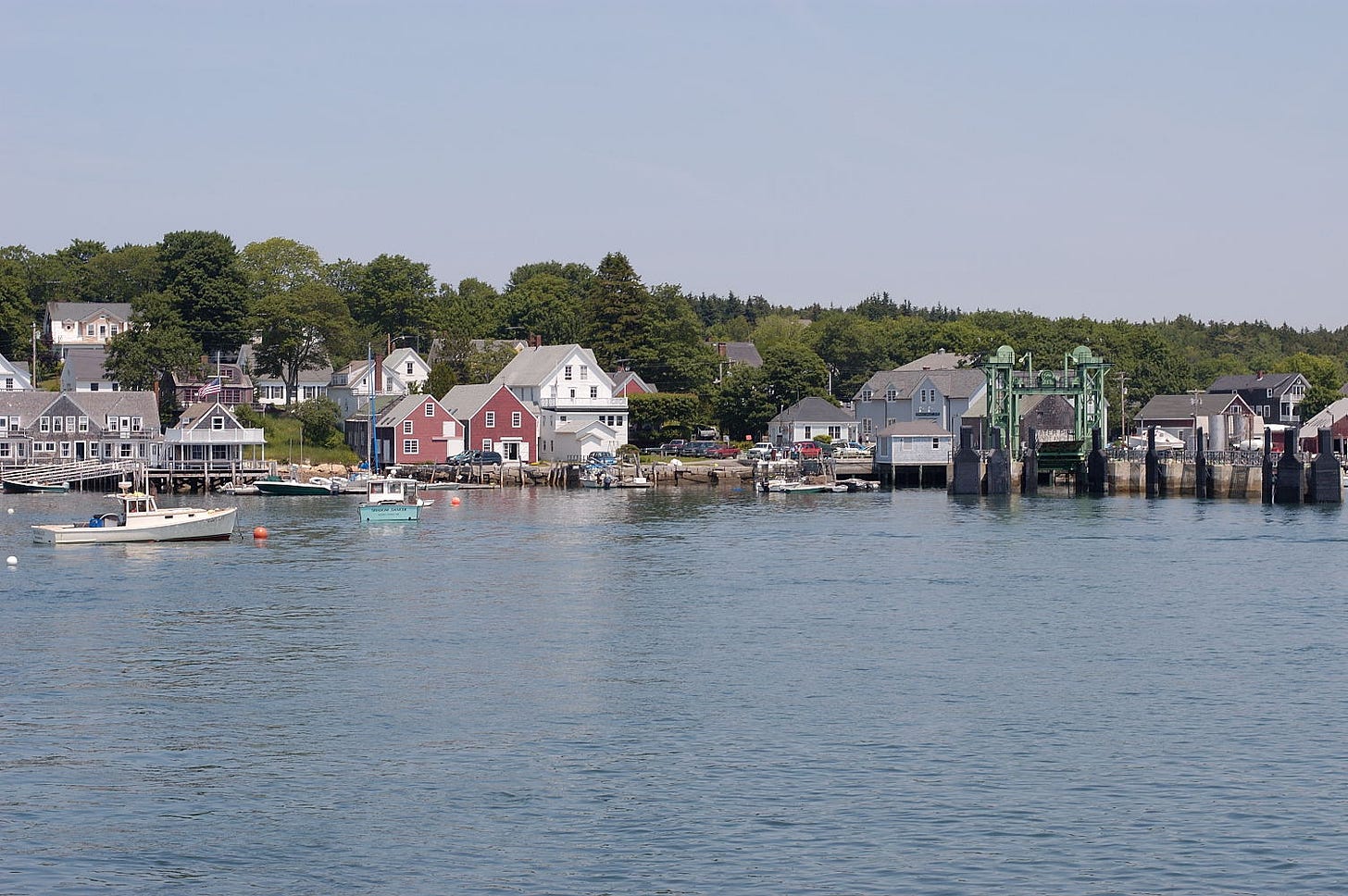

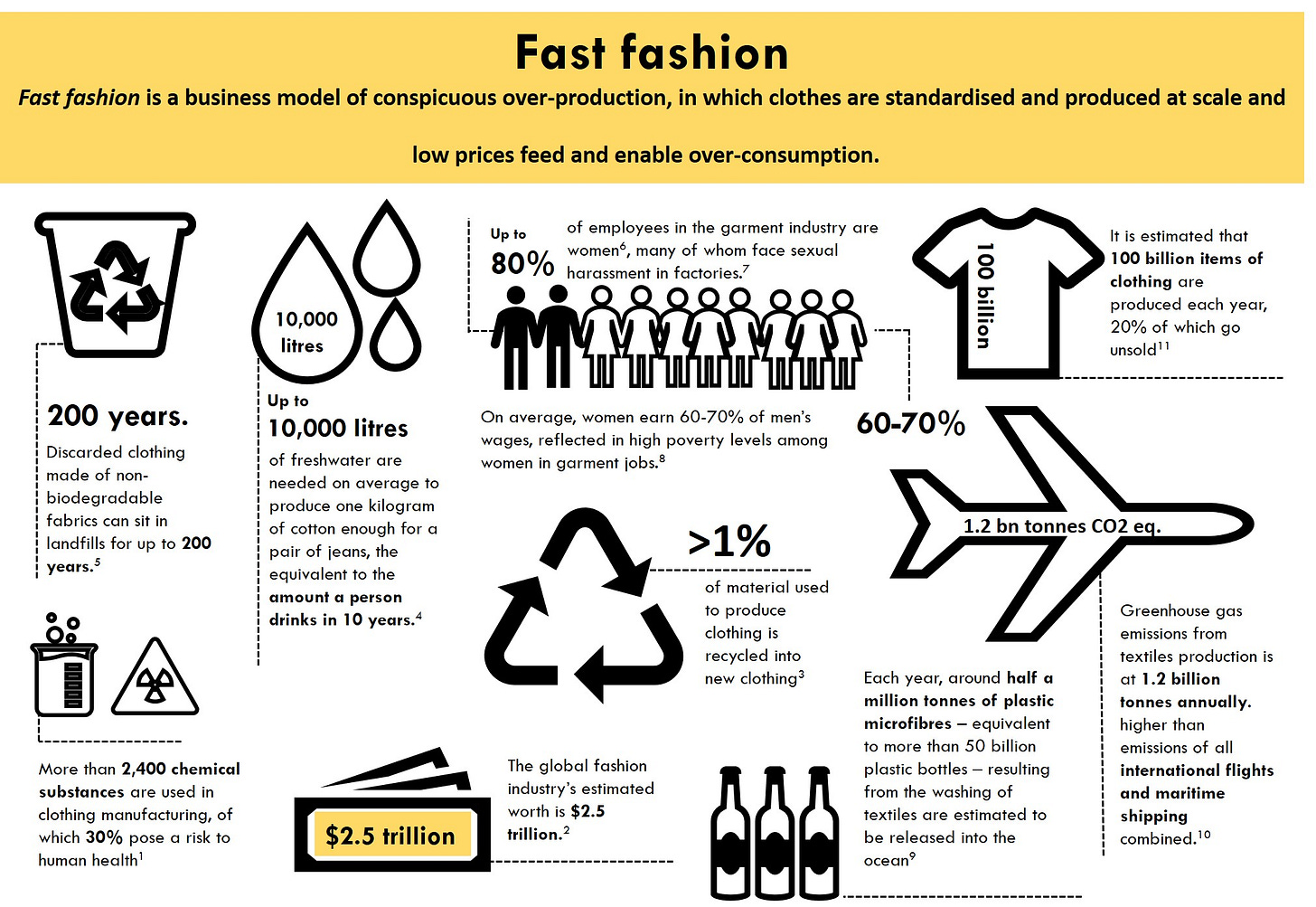



I love this lady! Good interview, especially how it culminated in the last bit about Somalis helping to revive Lewiston. We need stories like this so badly now. I was surprised to learn that the Gulf of Maine would heat faster than any other part of the ocean. I'm off to learn more about why ...
She is an outstanding representative. We certainly need to elect more like her to the House of Representatives.